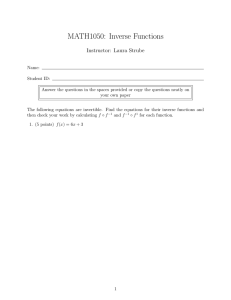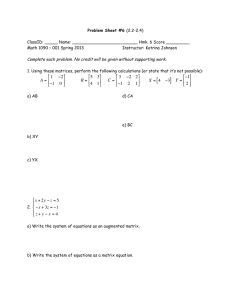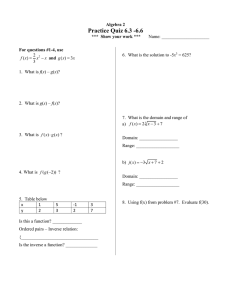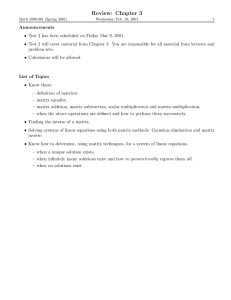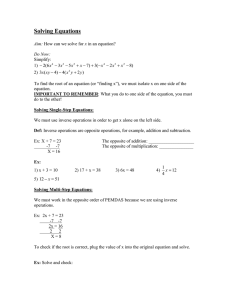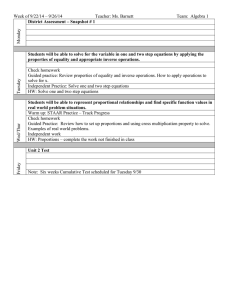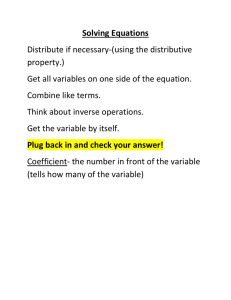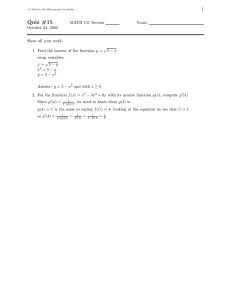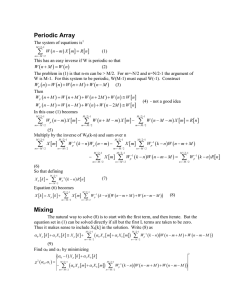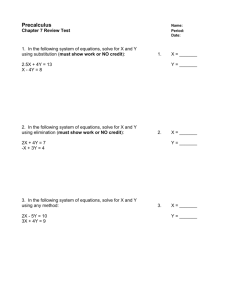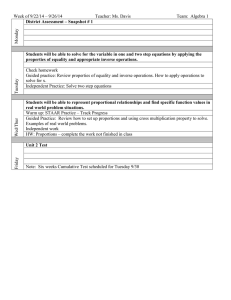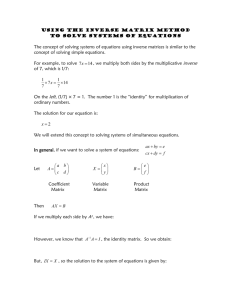Iterative improvement of the inverse matrix
advertisement
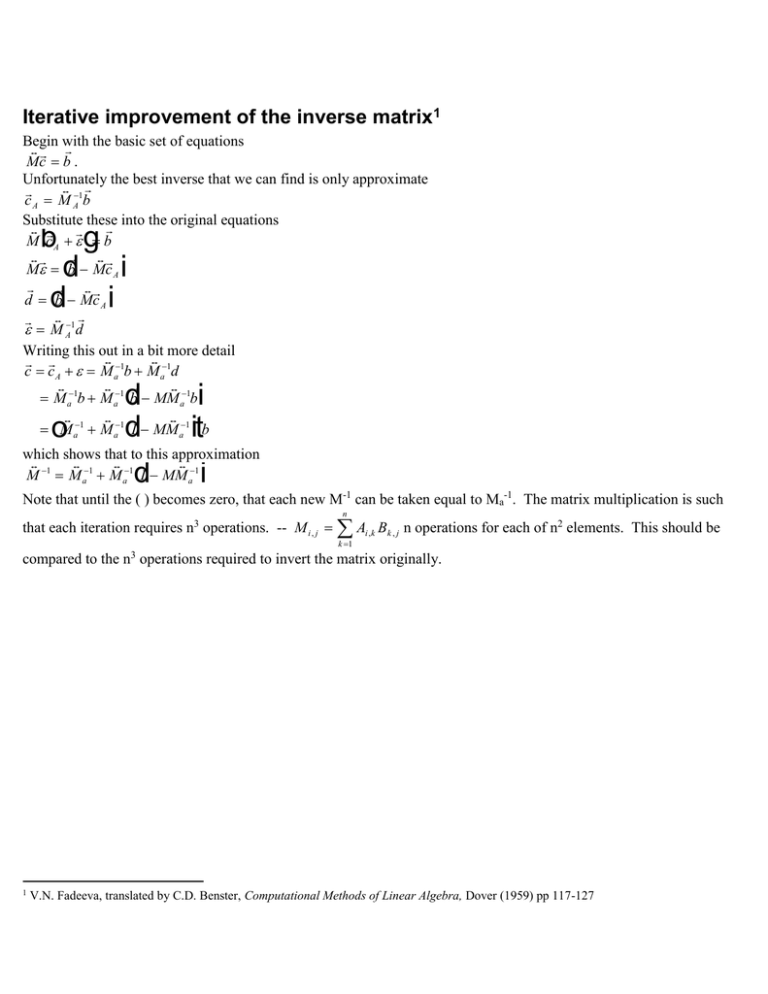
Iterative improvement of the inverse matrix1 Begin with the basic set of equations Mc b . Unfortunately the best inverse that we can find is only approximate c A M A1b Substitute these into the original equations M cA b M b Mc A d b Mc A M A1d Writing this out in a bit more detail c c A M a1b M a1d M a1b M a1 b MM a1b M a1 M a1 I MM a1 b b g d i d i d d i it o which shows that to this approximation M M M d I MM i 1 1 a 1 a 1 a Note that until the ( ) becomes zero, that each new M-1 can be taken equal to Ma-1. The matrix multiplication is such n that each iteration requires n3 operations. -- M i , j Ai ,k Bk , j n operations for each of n2 elements. This should be k 1 compared to the n3 operations required to invert the matrix originally. 1 V.N. Fadeeva, translated by C.D. Benster, Computational Methods of Linear Algebra, Dover (1959) pp 117-127
